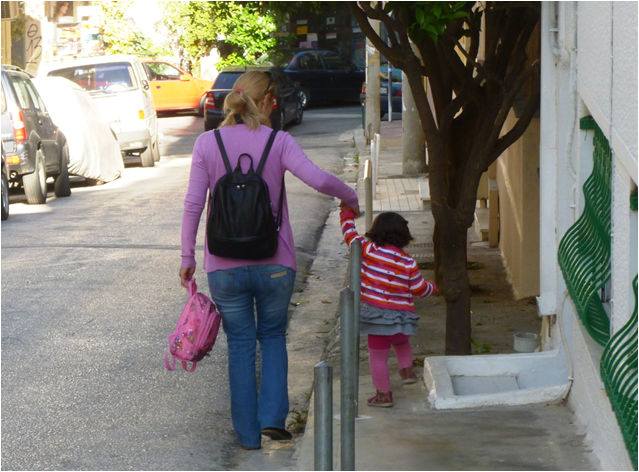On March 9th, I had the chance to speak at the European Parliament. The event was organised by “the Left” of the European Parliament on the occasion of Women’s Day.
Naturally, I could not speak about gender barriers in other countries, so I limited myself to describing the Greek experience (whose many problems could hardly fit in the alloted time).
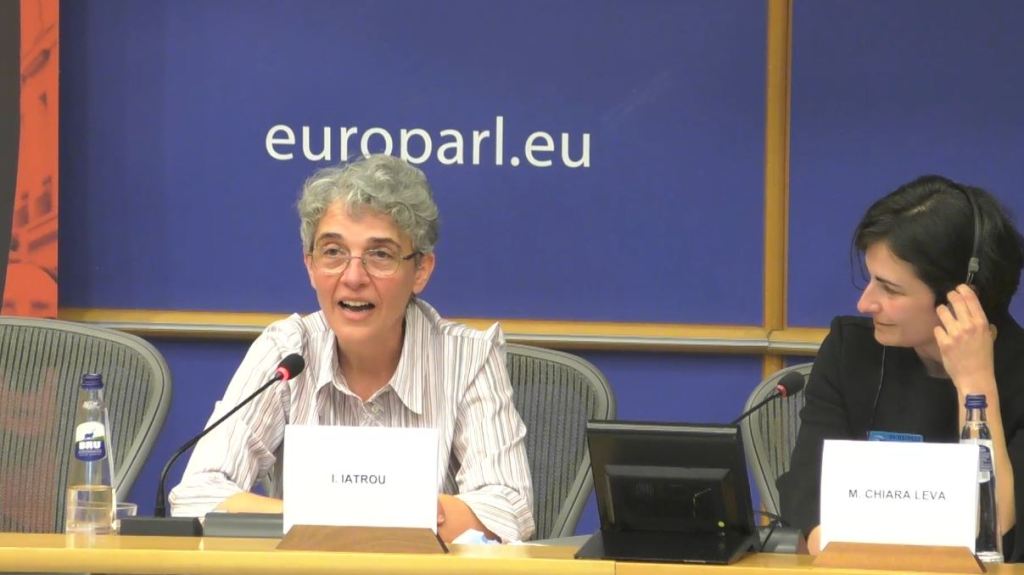
My speech and the accompanying pictures are below:
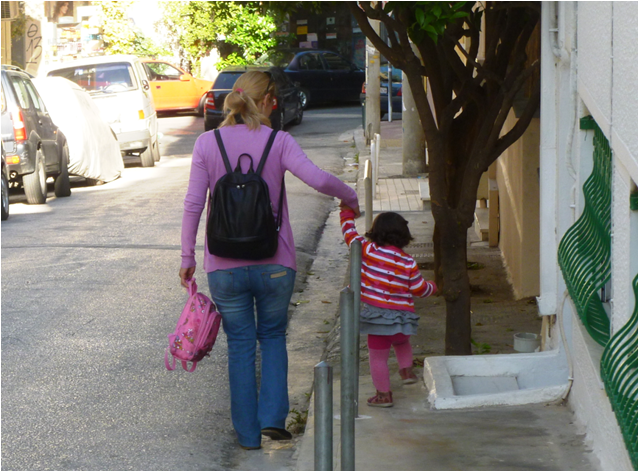
Ladies and gentlemen,
Hello. First I would like to thank Ms. Kountoura and the Left for inviting me here; it is a great honour for me to be here and address you on an issue that not only affects our quality of life so profoundly, but it costs Greek lives every year. I would also like to warmly thank the European Taxpayers, for paying the bill for my coming here today.
I was flown here, at such expense only to speak for 10 minutes. And I’m asking you: How can I possibly explain Greek streets in 10’? We live in a country that cars park safely on the sidewalks and their drivers walk in the street next to them.
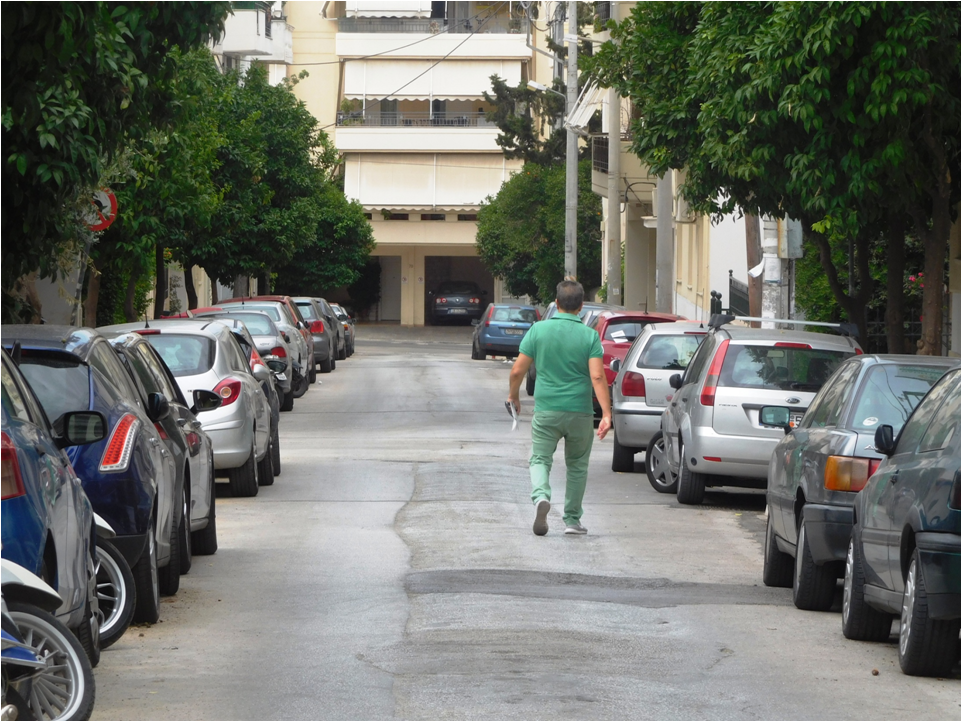
Where the police don’t think traffic violations are worth their attention. Why should they? After all, they park illegally themselves.
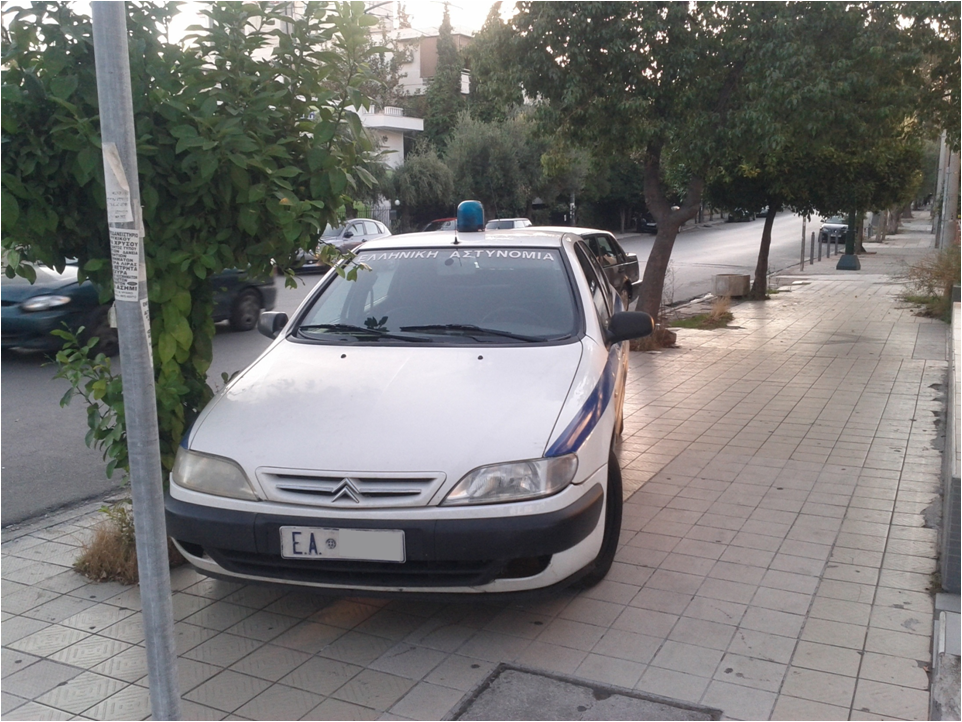
In Greece, people ride on sidewalks and honk for you to get out of their way. It doesn’t make sense.
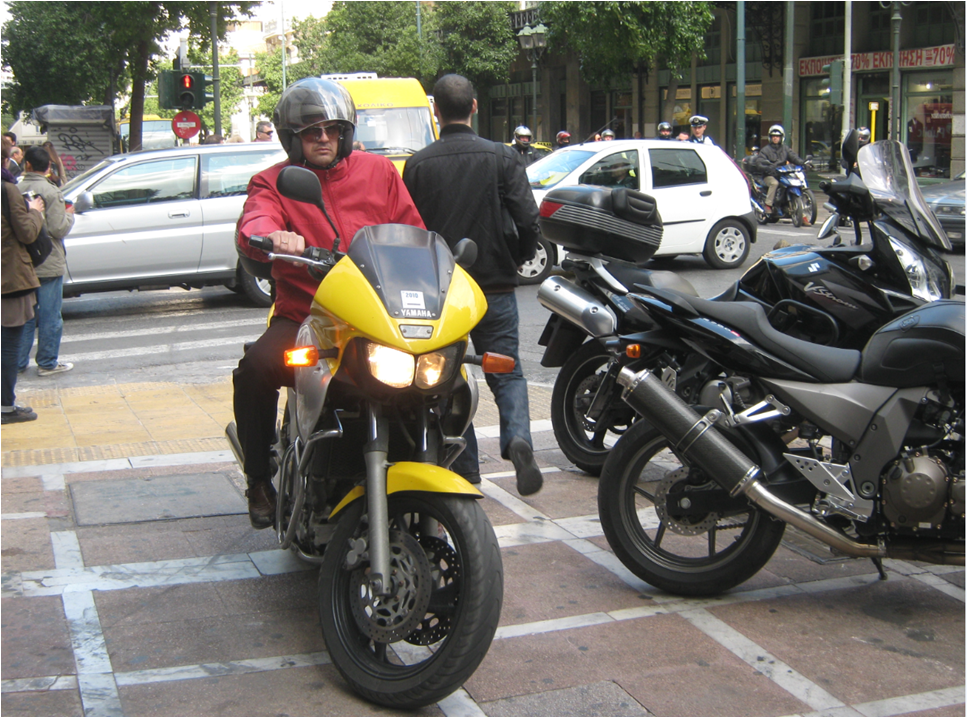
It is illogical. Mr. Spock, would run out of eyebrows to raise.

Who we are
Moms in the Street, grew up in this dystopia and took it for granted, as everyone else. It was only after we went out with a baby in a stroller that it struck as insane. Our group aims to save lives by bringing sanity to Greek streets.
Today our group comprises more than moms: we are more than 1,000 people, both men and women, ranging from 18 to 87, with or without children.
Care
Women undertake the vast majority of care work all over the world. This is not the time or place to examine the reasons, but we may look at the effects: while both men and women commute to work and back, women also make countless other trips, to the school or daycare, to the grandparents’, to the doctor’s, the pharmacy, the playground, the grocery store, the ballet classes, the football game.
During those trips, our biggest problems are
- Lack of proper footpaths
- Lack of transportation options
- Safety
1. Lack of proper footpaths
Greek sidewalks are narrow and not designed for accessibility.
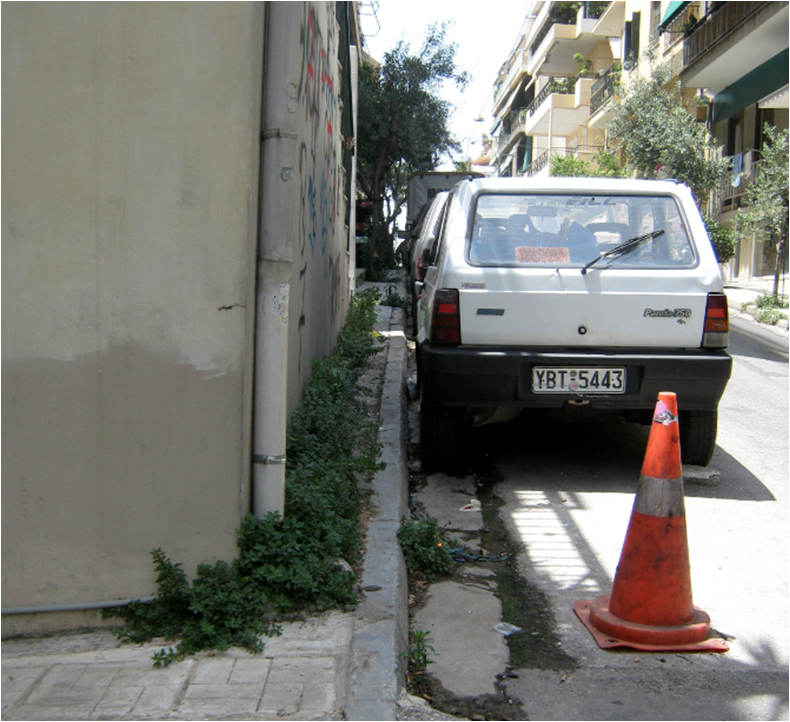
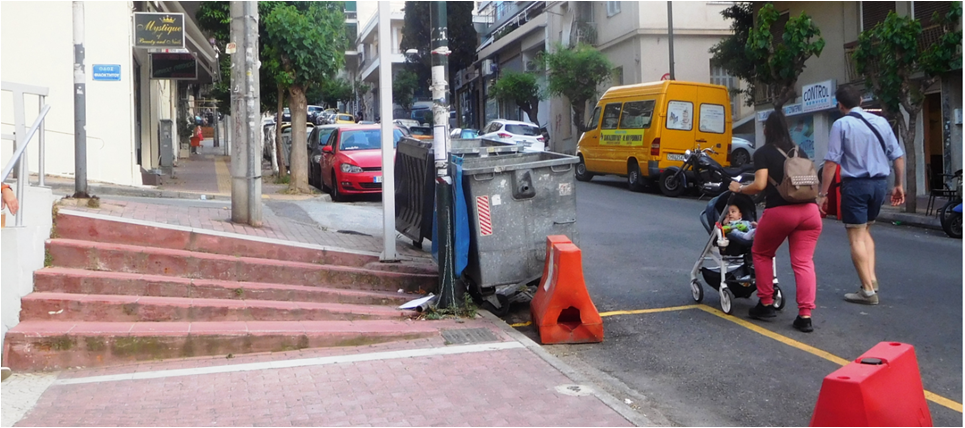
Those that are accessible, are not used for walking but for parking the vehicles which clog Greek streets.
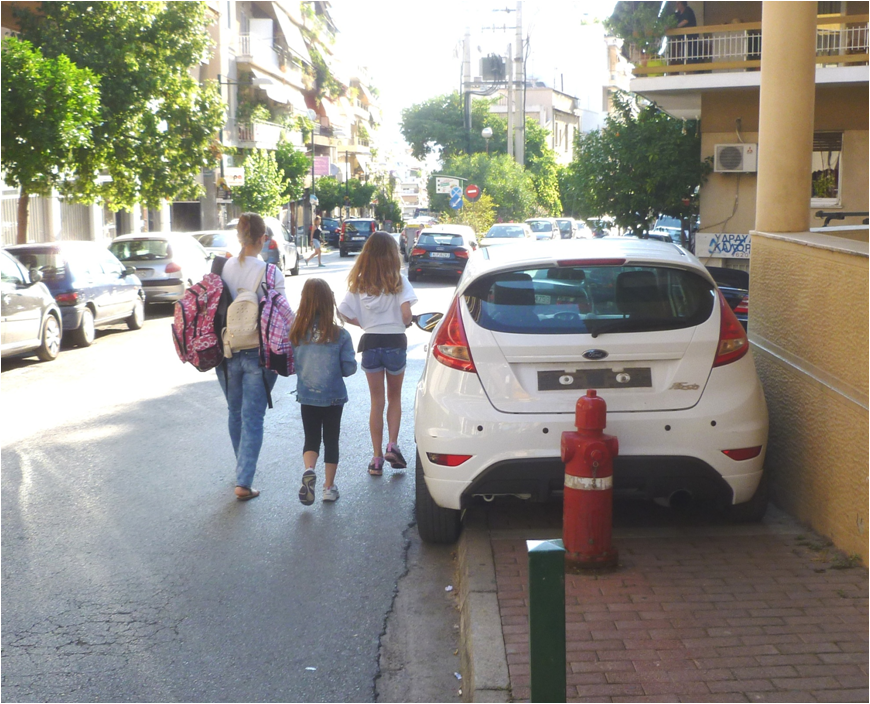
Dodging obstacles makes every trip longer.
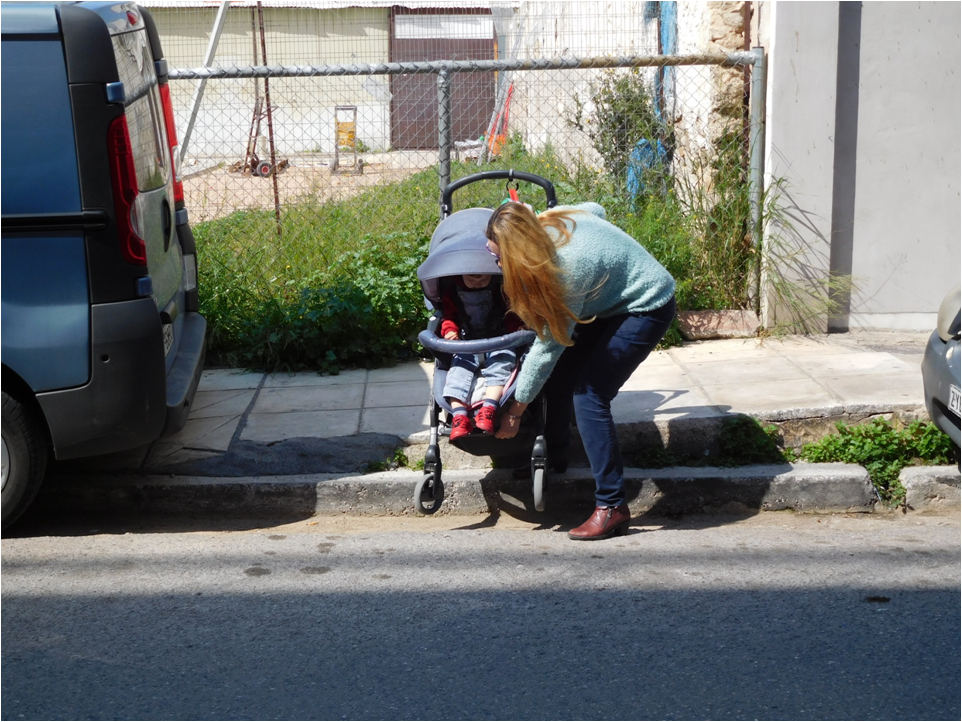
Hiding between parked cars whenever a car approaches, walking, pulling over again, multiplies the time it takes for every trip.

The disabled, the elderly and children find they can hardly go around their own block.
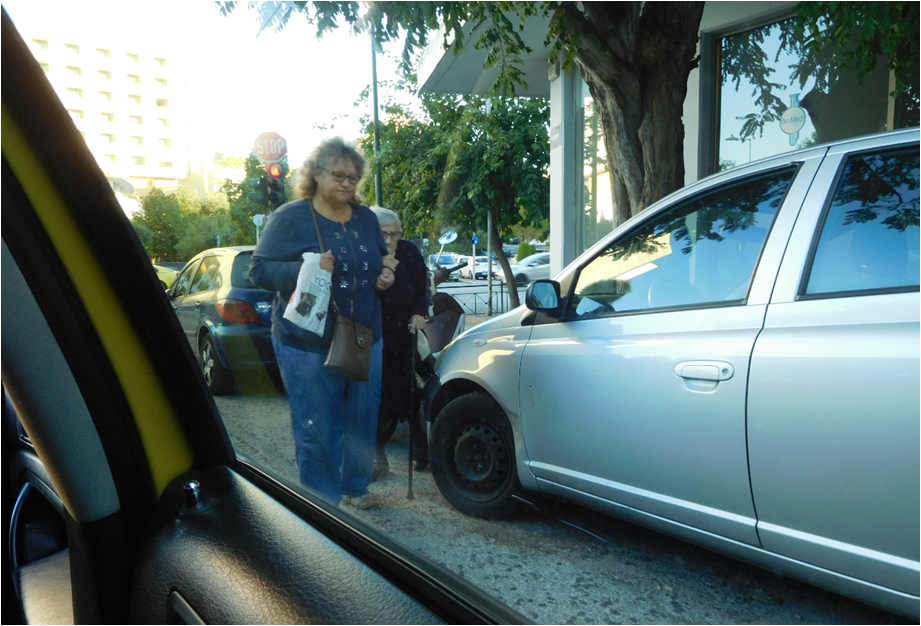
They end up being confined home, with dire effects on their physical or mental well-being.
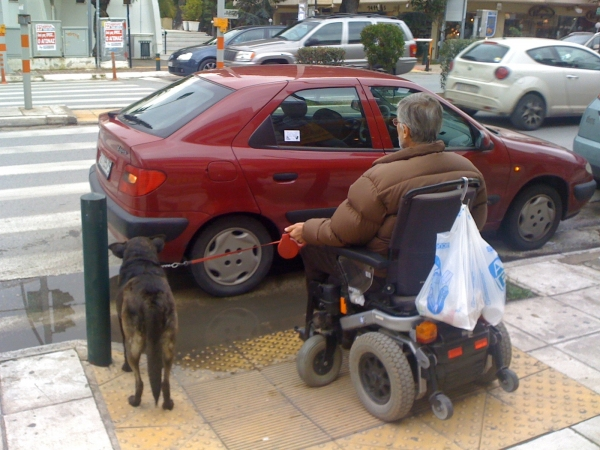
People resort to taking their cars or scooters for even the shortest distances.
2. Lack of transportation options
With few exceptions, bus and metro routes are radial, i.e. they all end up at the city centre. If your destination is along one of those routes, fine. If not, oops…
Let’s take a look at this map of a random route, which a friend has to do 3 times a week to care for her parents.
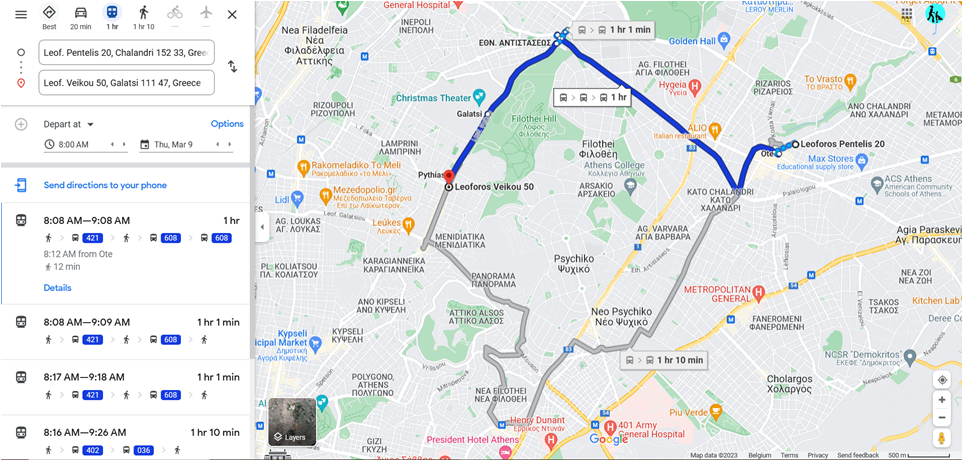
If you look at the top left hand corner you’ll notice that by public transport the trip takes 3 times longer than by car; the speed of buses is comparable to walking and that’s without counting waiting time.
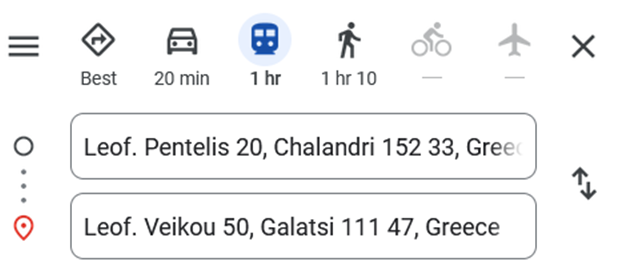
The waiting time is another joke. Bus routes are not all that frequent.
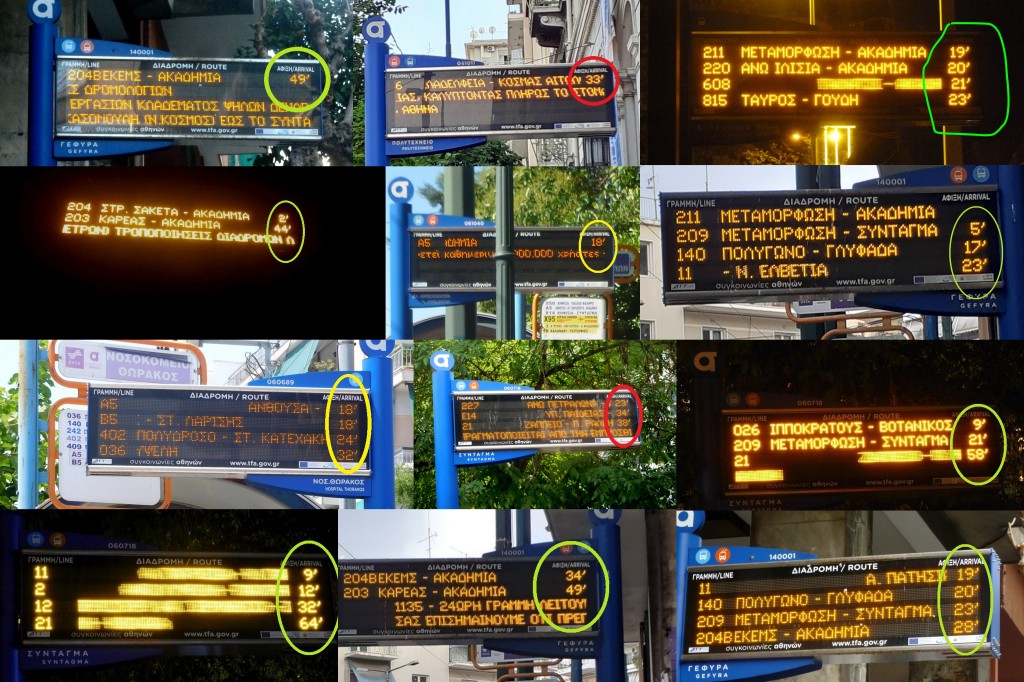
Women are busy people: we have to juggle work, housework, care work. We have no time to waste. My friend bought a car, the second in the family.
It’s not every family that can afford two cars (or even one). When there is one, it is usually used by the male partner, who usually works the longest hours, so that he can spend some time at home. Where there is none, the parents are away from home much longer; needless to say, their absence is not without impact to the children.
3. Safety
It is no joke walking along speeding vehicles. I remember people driving by so fast, that the draft shook the stroller.
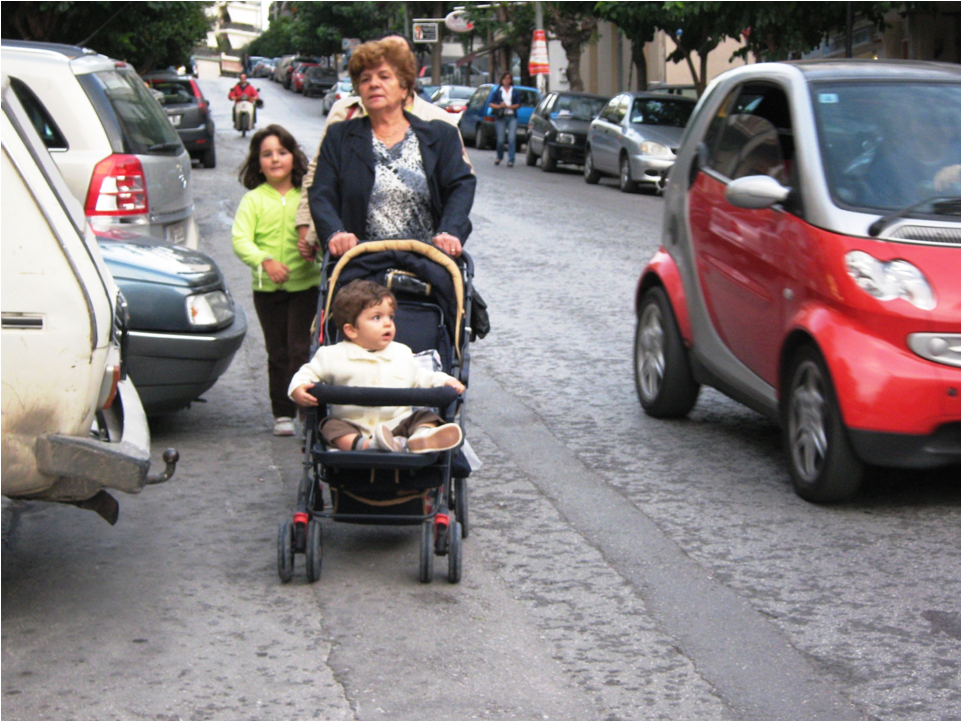
A driver’s glance at a mobile may prove fatal to us. The tragedies make headlines, but are soon forgotten.
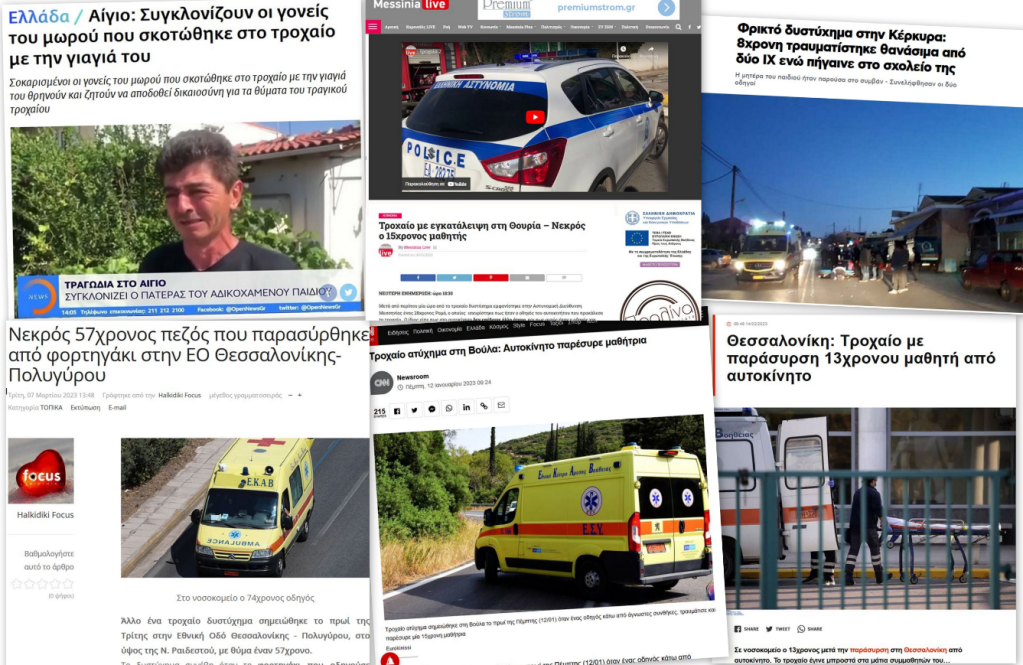
Is that the only danger? Hardly. Crossing the street is dangerous, because people don’t stop at crossings.
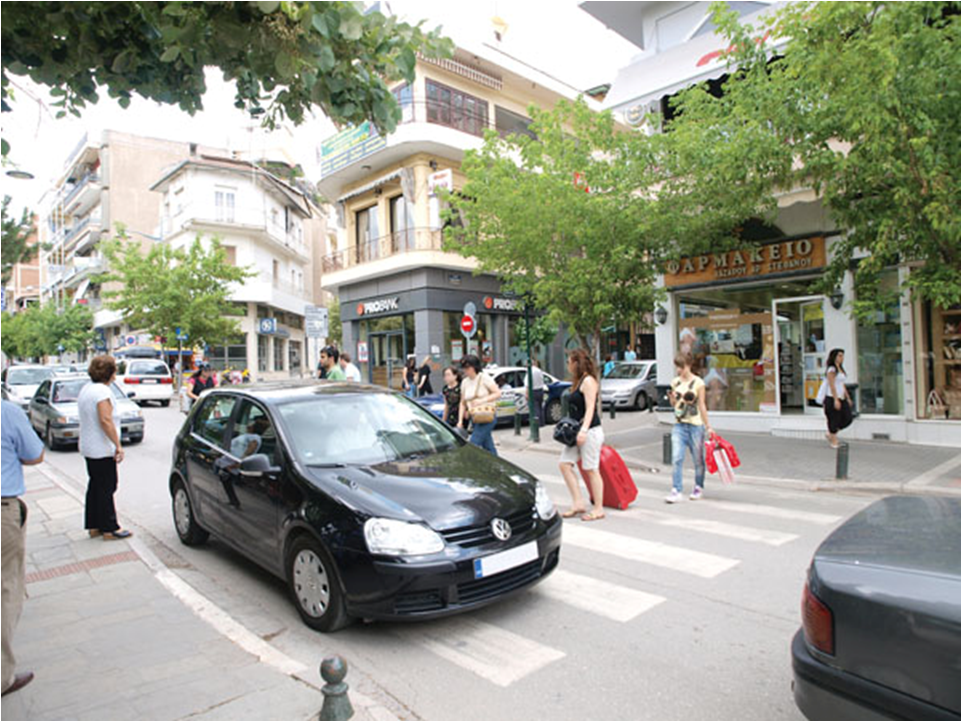
Traffic lights are too fast for the elderly. Sometimes one has to wait in the middle of a busy avenue, where there is little space for a stroller.
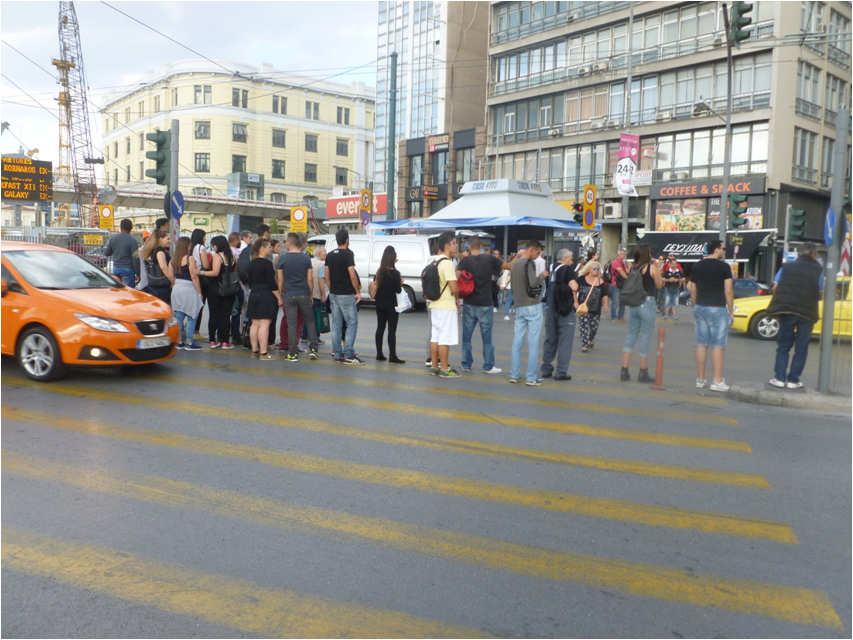
There are no alternatives: overpasses are rare and underpasses dark and dangerous. To women, they are useless as a means of crossing, especially at night.
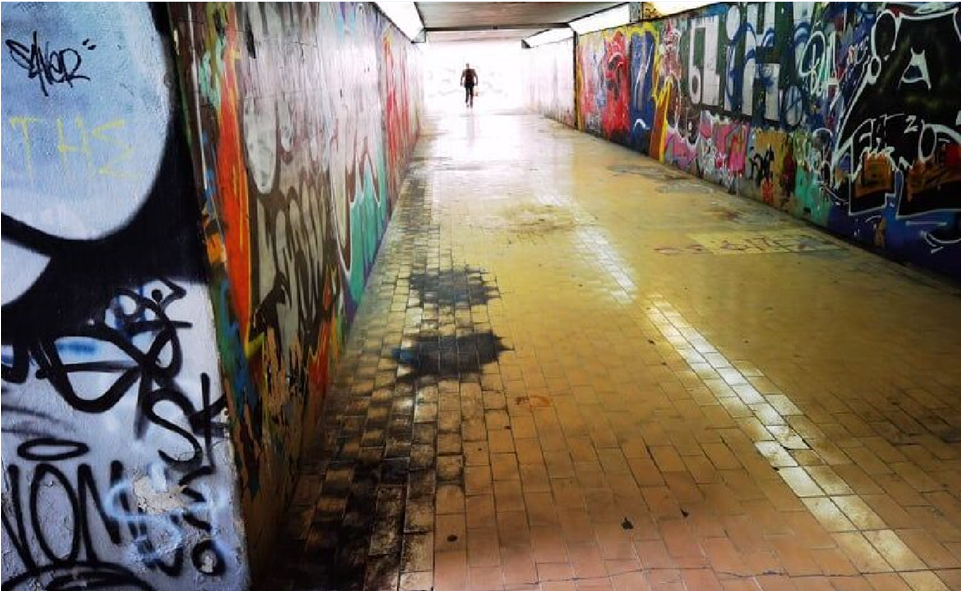
Last, there is harassment. I have been fondled in the subway. I’ve had my wallet pinched in the bus. When it is overcrowded, you can’t even tell who did it. But they are always overcrowded, because they are just not frequent enough.
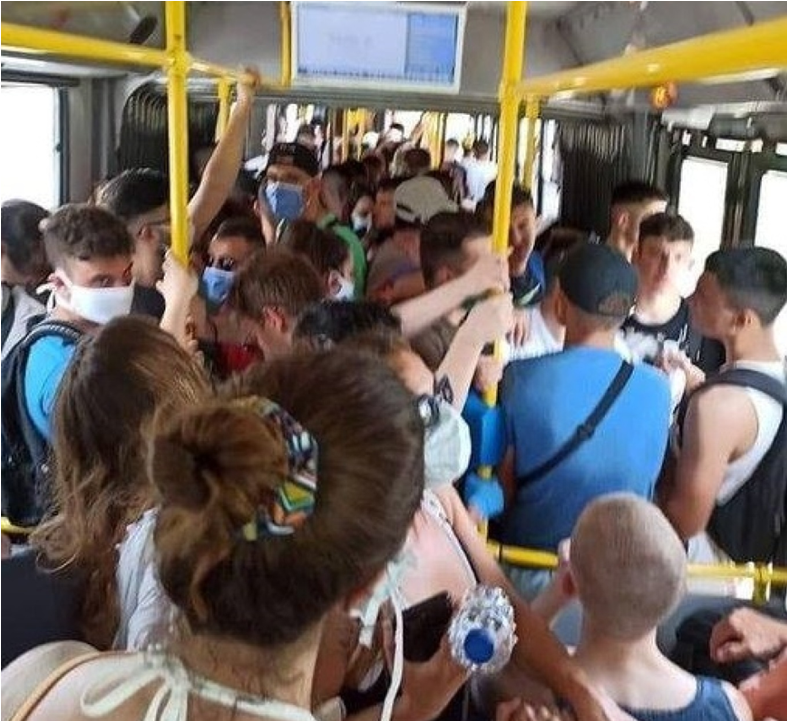
And then statisticians wonder how it is that, despite the Crisis, car ownership has gone up. It may be expensive, it may be gridlocked, it may contribute to air pollution, but at least, when I’m driving I can feel safer than in any other means of transport. And, naturally, this undermines any attempt at sustainable mobility.
Danger in plain sight
A week ago, a train crash cost the lives of dozens of people; the crash exposed years of mismanagement, of poor infrastructure and danger that was hidden in plain sight. Everyone involved in the railways knew; yet their complaints were never heard. It is the same with Greek streets: we have informed every authority about the difficulties and dangers we face every day. And we know that they hear us because every 4 years, just before the elections, they remember to tell us that all our complaints will be settled. They haven’t, so far.
We have been let down by every authority – left, right and centre. Our voice doesn’t seem to affect their decisions in the slightest. Yet we are mothers. This affects our children and, when it comes to our children, we simply cannot give up. We will stubbornly keep on fighting until the situation is made better, until our streets are safer and a pleasure to be in.
Thank you

